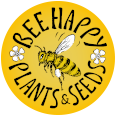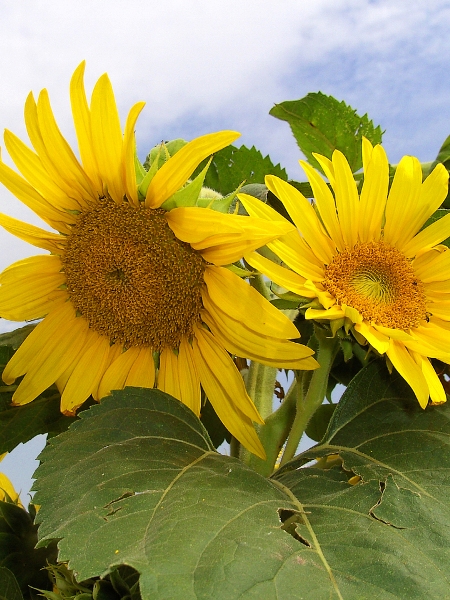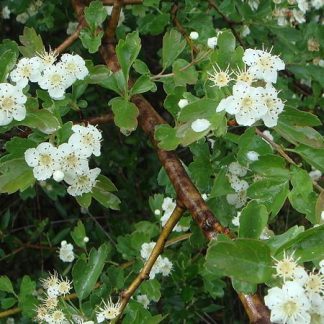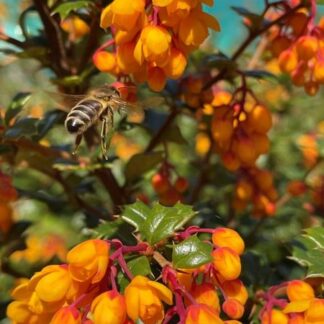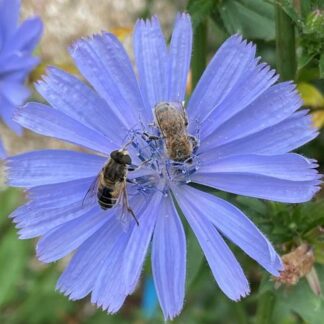Description
Asteraceae(family)
Forage for Pollinators: Nectar and Pollen is produced and foraged by Honeybees, Bumblebees both long and short-tongued, Solitary bees and flies. The pollen is especially sought after in autumn when there are few sources of pollen available. Sunflowers are rarely self-pollinated and most need pollen transferred to them from other sunflowers. Seed yield of sunflower crops is significantly increased by taking honeybee colonies to them. There are also extrafloral nectaries in bracts and upper leaves.
Flowering time: July, August, September.
Growing information: ANNUAL growing to 3 m (9ft) by 0.3 m (1ft in). Open-pollinated, organic variety. Hardy to minus 17ºC. This can be a major source of nectar and pollen in warmer climates than the UK, such as France, yielding 30-100 pounds of honey per acre, and 200-250 pounds of pollen. Increasingly being grown here in the UK on field-scale for game cover and bird-seed, and this must be of great benefit to bees when organically grown. The oil of sunflower seeds contains between 44 – 72% linoleic acid, 24% protein and a whole array of vitamins and minerals. Sowing rate: 10 kg per acre (25 kg/ha, 2.5 g/m²). The annual sunflower is best sown under cover in pots (in the greenhouse in spring March/April) and planted out after danger of frost has passed, and as soon as it is big enough to sustain slug attacks. On a field-scale it is best sown after all risk of frost has passed (from around mid April, depending on how far north you are). Sow into well prepared friable soil, by hand is possible just broadcast at the approximate sowing rate, then do a pass with shallow tines, to bury the seeds approximately 2-3 cm and then roll for good seed/soil contact. Or direct drill. Bird-scarers may be necessary to prevent decimation of seedlings. Many varieties have been bred, but we stock just the tall, Giant Yellow variety Giant Yellow sunflower, and this, the agricultural ‘Peredovick’ which is a shorter, multi-headed variety
We currently only sell our own organic ‘Giant Yellow’ Sunflower seed
Photo by Stefan Stüber from FreeImages
